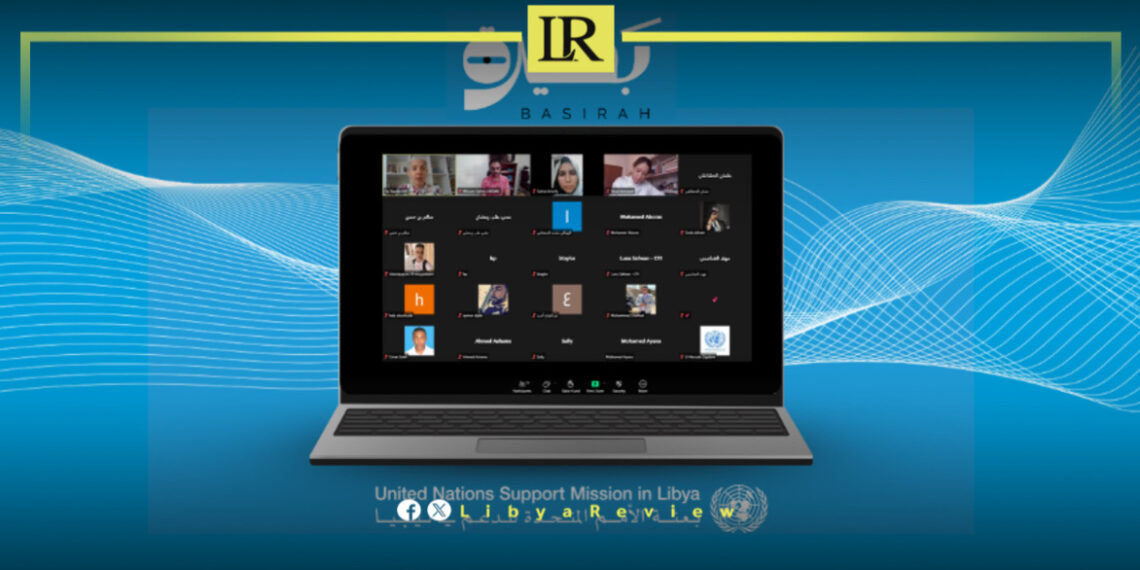Libyan journalists participating in a recent workshop organized in coordination with the Committee to Protect Journalists (CPJ) have shared personal accounts of the violence and harassment they face, both online and in real life.
The workshop, held as part of the “Baseera” program launched by the UN Mission, gathered 25 journalists and focused on online abuse, understanding digital threats, and best practices for managing or responding to harassment in digital spaces.
Ella Stapley, a representative from CPJ who led the training, noted that the issue is global. “I have yet to encounter a country where online abuse doesn’t occur,” she said, highlighting that the most common forms include spam messages and doxing (publishing personal information). She emphasized that women are often disproportionately targeted.
The CPJ discussed the underlying causes of harassment, explaining that perpetrators often aim to disrupt narratives or prevent journalists from investigating certain issues. Journalists, by working in the public space, are inherently more exposed to such threats.
“Many journalists have taken no steps to protect themselves digitally,” Stapley warned. She introduced CPJ’s digital risk assessment models, designed to help media professionals evaluate threats before undertaking assignments.
She added that harassment can directly impact freedom of expression, silencing journalists and leading to a rise in misinformation and public distrust.
The CPJ underscored that female journalists face even more harassment than their male counterparts, referencing a major three-year global study by the International Center for Journalists (ICFJ), supported by UNESCO. Key findings from the study include:
73% of women journalists surveyed experienced online violence.
25% reported threats of physical violence, while 18% received threats of sexual violence.
20% said online abuse escalated into offline incidents.
26% reported psychological impact as the most common consequence.
12% sought medical or psychological support.
11% took leave from work due to the abuse.
Nearly 48% were harassed via unwanted private messages.
Participants also expressed growing concerns about the role of artificial intelligence (AI) in enabling online harassment. They warned that AI tools could be exploited to scrape the internet and retrieve outdated or inaccurate information that could be weaponized.
“AI can accelerate harassment by making it easier for abusers to find personal data,” Stapley explained. “Removing such information from the source is essential, though even that may not be enough.” She advised journalists to proactively manage what information they share online as a first line of defense.
The Baseera program will continue to hold additional sessions in July, focusing on online harassment and digital safety. Journalists and media professionals are encouraged to register for upcoming workshops aimed at improving digital resilience in hostile environments.


